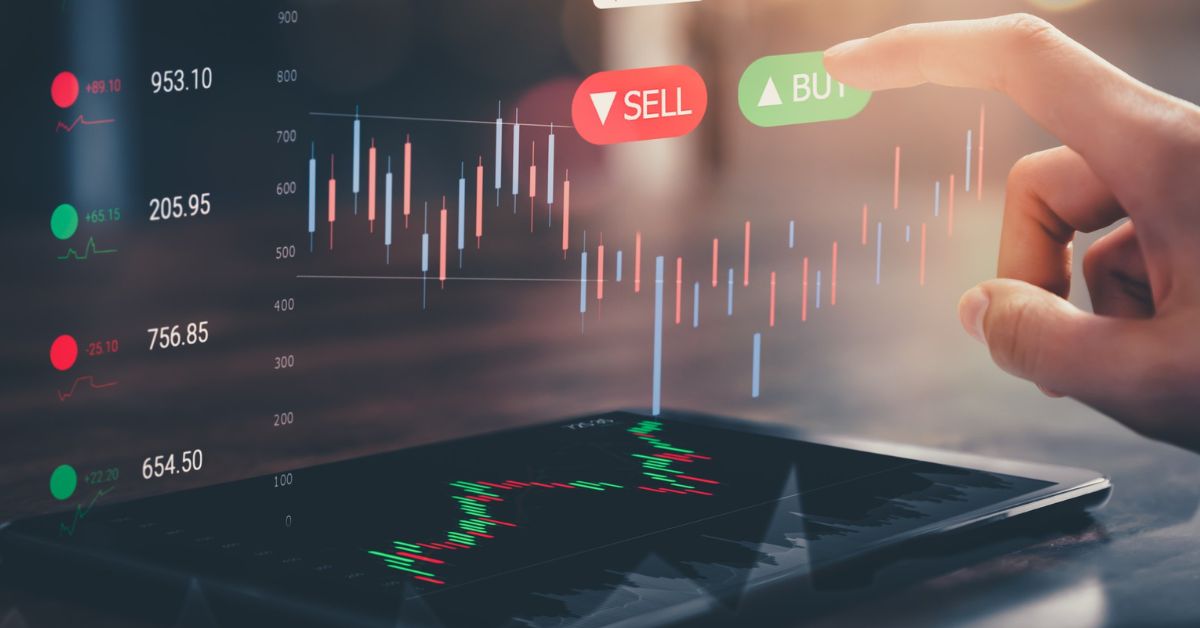The psychology of trading plays a crucial role in the success of a trader. A good understanding of how emotions and mental states influence decision-making can make all the difference. To master trading psychology, you need to identify emotional triggers and devise strategies for dealing with them. In this post, we’ll explore critical psychological concepts and give you some practical advice on how to become a more disciplined trader.
Trading platforms like Prime XBT and psychological insights can help traders improve their performance. Prime XBT provides robust tools and resources to help traders make informed decisions. Its user-friendly interface and advanced features help traders manage their psychological challenges.
The Role of Emotions in Trading

Emotions play a significant role in trading decisions. They can influence actions, leading to both successes and failures.
Common Emotions Affecting Traders
Fear is a common emotion that can lead to hesitation. Traders might avoid taking necessary risks due to fear of loss. Greed can drive traders to seek excessive profits. It often results in overtrading and poor decision-making. Overconfidence occurs when traders believe they are infallible. This can lead to risky trades and unexpected losses.
Impact of Emotions on Decision-Making
Emotions can cloud judgment, leading to impulsive decisions. For example, fear may cause premature exits, while greed can push for risky moves. It is crucial to understand and manage these emotions. Effective trading requires emotional control to maintain a disciplined approach.
Key Psychological Concepts in Trading
Understanding psychological biases is essential for successful trading. These biases often influence decision-making in subtle yet significant ways.
Behavioral Biases
Confirmation Bias is when traders seek information that supports their beliefs. This can lead to ignoring crucial contradictory data. Anchoring happens when traders rely too heavily on initial information. This bias can skew their judgment on future decisions. Loss Aversion describes the tendency to prefer avoiding losses over acquiring gains. It often results in missed opportunities.
Mental Toughness
Mental toughness is crucial in trading. It helps traders stay focused and resilient during challenging market conditions. Developing mental toughness requires practice and discipline. Techniques like mindfulness and stress management can be highly effective. Traders with strong mental resilience can better handle market volatility, helping them maintain a consistent and disciplined approach.
How to Develop a Trading Plan
A well-structured trading plan is essential. It serves as a roadmap to guide your decisions and manage emotions.
Why a Trading Plan is Essential
A trading plan helps reduce emotional decision-making. It provides clear rules for entry, exit, and risk management. Having a plan ensures consistency. It allows traders to stay focused, even when emotions run high during market fluctuations.
Key Elements of a Trading Plan
The following are several elements to keep in mind when creating a trading plan:
Set Specific Goals
Goals give you direction. They help focus your efforts and provide benchmarks for measuring progress. A goal could be achieving a 5% monthly return. Another might be limiting losses to 2% of your capital.
Short-term goals help you stay motivated daily. Long-term goals keep your trading aligned with broader financial objectives. Regularly review your goals. This ensures they remain relevant and achievable as market conditions change.
Define Your Trading Strategy
Decide which markets to trade. Options include stocks, forex, cryptocurrencies, or commodities based on your expertise. Choose timeframes that match your lifestyle.
Day traders focus on minutes, while swing traders prefer days or weeks. Define criteria for entering and exiting trades. It might include technical indicators, price patterns, or fundamental analysis.
Strategy Alignment
Ensure your strategy aligns with your goals. For example, a conservative strategy matches with long-term wealth preservation goals. Decide how much to risk on each trade. A common rule is risking 1-2% of your capital per trade. Stop-loss levels protect you from significant losses.
Set them based on market volatility and your risk tolerance. Position sizing is crucial for managing risk. It involves determining the amount of capital allocated to each trade.
How to Manage Managing Trading Psychology

Trading psychology involves controlling emotions, staying focused, and continuously improving. Here are essential techniques to help manage your trading mindset.
Mindfulness and Self-Awareness
Mindfulness and self-awareness are foundational to maintaining emotional control in trading. In mindfulness, you’re fully present in the moment, which helps you recognize and manage your emotions. You can stay mindful and observe feelings of fear, greed, or frustration without letting them rule your trading.
This practice helps maintain focus and clarity, preventing impulsive actions driven by emotions. Even in high-pressure situations, mindfulness exercises like meditation or deep breathing can help you stay calm. Mindfulness goes beyond trading, promoting mental well-being, and improving decision-making.
Keeping a Trading Journal
Keeping a trading journal is an invaluable tool for self-awareness and continuous improvement. Documenting each trade, along with the emotions you experienced during the process, provides insights into your behavioral patterns. This record helps you identify emotional triggers, such as fear during market downturns or overconfidence after a series of wins.
Reviewing your journal regularly will help you pinpoint where emotions influenced your decisions so you can adjust your approach. It’s important to include not just technical details about each trade but also psychological notes before, during, and after. With this comprehensive documentation, you can fine-tune your trading strategy and gain more emotional control.
Regular Performance Review
Regularly reviewing your trading performance and psychological state is crucial for long-term success. During a performance review, you analyze both profitable and losing trades to determine what strategies are working and what needs to be adjusted. However, it’s equally important to evaluate your psychological state during these trades. Did stress and emotions affect your decision-making?
Integrate psychological insights into your performance reviews to develop a resilient trading mindset. Take some time to reflect on your overall trading approach, including how well you handled your emotions and whether your decisions aligned with your trading plan. Making adjustments based on these reviews helps keep your trading disciplined and consistent.
Professional Help
Seeking professional help can significantly enhance your trading psychology. Working with a trading psychology coach can provide personalized guidance and support. The On Tilt Trading Store offers specialized trading psychology coaching to help traders manage their emotional development strategies and improve their skills.
Professional coaching can help you break through psychological barriers and build a more resilient trading mindset. If you need help controlling your emotions or optimizing your mental approach, our coaching session can help. Check out our store today and use promo code OTT10 to receive 10% off your order.
Common Psychological Pitfalls and How to Overcome Them

Understanding and addressing common psychological pitfalls can improve your trading performance. Here are some strategies for addressing these issues.
Fear of Missing Out (FOMO)
Fear of Missing Out (FOMO) happens when traders fear missing a profitable trade. This anxiety can drive impulsive decisions. Traders may enter trades hastily, hoping to capture quick gains. FOMO often results in chasing the market and poor trade execution. The constant worry about missing out disrupts disciplined trading.
Combat FOMO by adhering strictly to your trading plan. Set specific criteria for entering and exiting trades. Avoid making impulsive trades based on market hype. Remind yourself that opportunities will continue to arise. Focus on your plan and trust the process for consistent results.
Overconfidence
Overconfidence occurs when traders become excessively sure of their decisions. They may believe their predictions are always correct. This overconfidence often leads to increased risk-taking and larger trades. Traders might ignore warning signs or risk management rules. Overconfidence can result in significant losses when the market moves unexpectedly.
Review and analyze your trades regularly to avoid overconfidence. Set realistic, achievable goals and assess your performance objectively. Use a risk management strategy to protect against significant losses. Keeping a grounded perspective helps prevent reckless trading and maintains discipline.
Chasing Losses
Chasing losses happen when traders attempt to recover lost money by taking on higher risks. This behavior often leads to increased trading frequency and more significant losses. The desperation to recoup losses can cause impulsive decisions and emotional trading. Chasing losses typically exacerbates financial difficulties and trading stress.
Set strict stop-loss limits for each trade to prevent chasing losses. Accept that losses are an inherent part of trading. Avoid trying to recover losses with high-risk trades. Focus on adhering to your trading plan and maintaining a long-term perspective. Stay disciplined and avoid emotional decision-making.
Conclusion
Consistent success depends on mastering trading psychology. Learn psychology pitfalls and fix them to improve your decision-making and trading. Developing a resilient mindset requires techniques like mindfulness, journaling, and coaching.
Are you tired of losing money as a result of panic selling, FOMO, overtrading, and bag-holding? We recommend the Vestinda trading app. It eliminates emotional decision-making with automated crypto trading strategies. Enhance your trading discipline and performance with Vestinda today.



